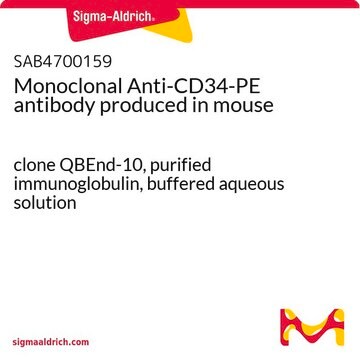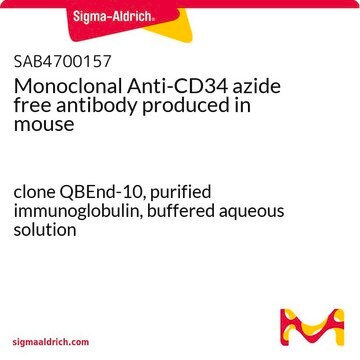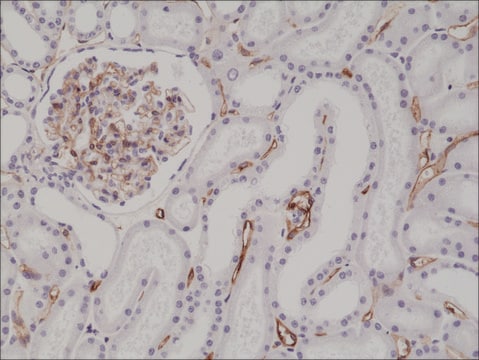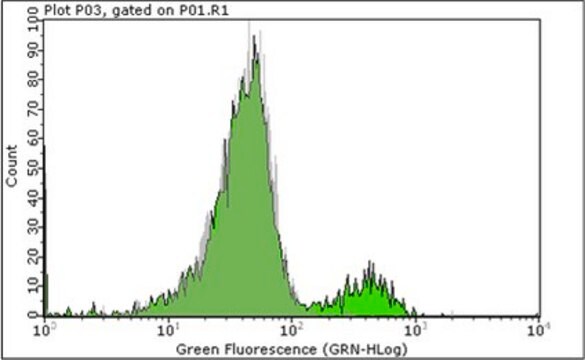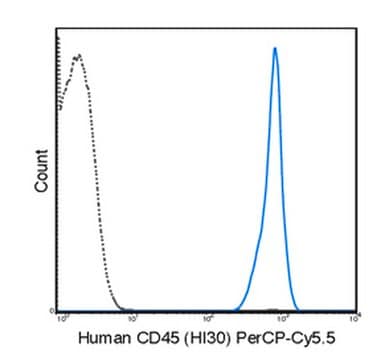CBL555
Anti-CD34 Class III Antibody, clone 581
clone 581, Chemicon®, from mouse
About This Item
Productos recomendados
biological source
mouse
Quality Level
antibody form
affinity isolated antibody
antibody product type
primary antibodies
clone
581, monoclonal
species reactivity
human
manufacturer/tradename
Chemicon®
technique(s)
flow cytometry: suitable
isotype
IgG1
NCBI accession no.
UniProt accession no.
shipped in
wet ice
target post-translational modification
unmodified
Gene Information
human ... CD34(947)
Specificity
The antibody reacts with a single-chain 105-120 kDa heavily O-glycosylated transmembrane glycoprotein which is expressed on haematopoietic progenitor cells, vascular endothelium and some tissue fibroblasts. The intracellular chain of the CD34 antigen is a site of phosphorylation by activated protein kinase C suggesting a putative role in signal transduction. CD34 may also play a role in the adhesion of specific antigens to endothelium.
Application
Inflammation & Immunology
Immunoglobulins & Immunology
Optimal working dilutions must be determined by the end user.
Physical form
Storage and Stability
Legal Information
Disclaimer
¿No encuentra el producto adecuado?
Pruebe nuestro Herramienta de selección de productos.
Storage Class
12 - Non Combustible Liquids
wgk_germany
WGK 2
flash_point_f
Not applicable
flash_point_c
Not applicable
Certificados de análisis (COA)
Busque Certificados de análisis (COA) introduciendo el número de lote del producto. Los números de lote se encuentran en la etiqueta del producto después de las palabras «Lot» o «Batch»
¿Ya tiene este producto?
Encuentre la documentación para los productos que ha comprado recientemente en la Biblioteca de documentos.
Nuestro equipo de científicos tiene experiencia en todas las áreas de investigación: Ciencias de la vida, Ciencia de los materiales, Síntesis química, Cromatografía, Analítica y muchas otras.
Póngase en contacto con el Servicio técnico